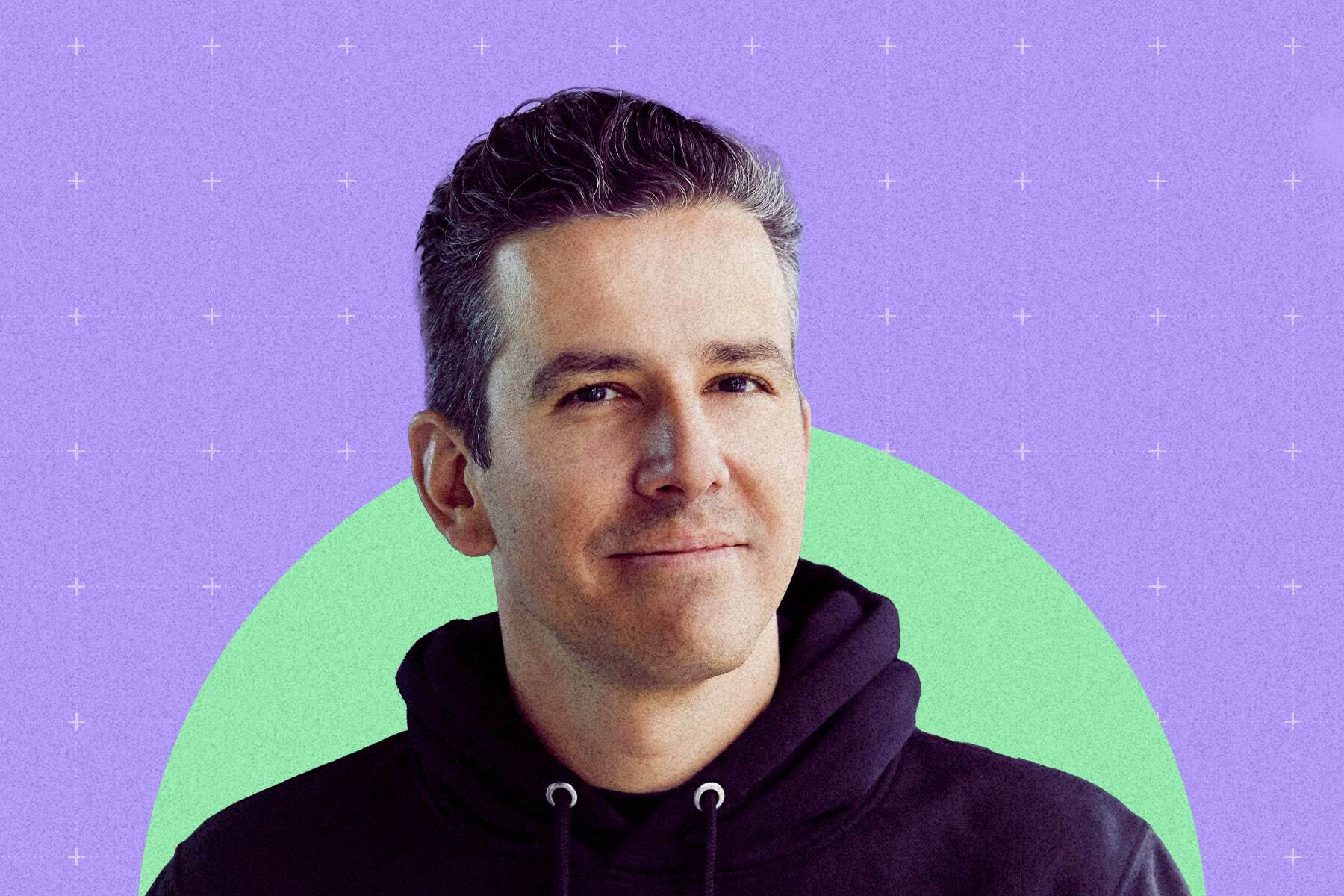
Adrian Locher is a serial founder, angel investor, founder of an incubator and head of a VC. In November last year he announced his new fund: 100 million euros, all of which Merantix wants to invest in AI startups. The goal, says Locher, is 30 to 40 investments with a corresponding ticket size of one to three million euros. “We can invest globally, but our focus is on Europe,” says the investor. And: they are early-stage, very early: “We are in the earliest possible phase. When we incubate, it is actually 'pre-idea to pre-seed'.”
Locher is something of an AI native, if there is such a thing. In other words, he has been working on the topic for a long time, significantly longer than other venture capitalists who are now jumping on the bandwagon. With DeinDeal, he once built up a leading e-commerce company in Switzerland and sold it in 2015 with sales of 100 million euros. Then he went to San Diego for a while, and in 2016 he started Merantix with Rasmus Rothe, a “venture studio”, as it is called. A kind of incubator and hub for AI startups, all of which come together at Locher's AI Campus in Berlin. He has already invested 30 million euros in this way. And he has been involved as a VC since 2023. In the past eight weeks alone, the Merantix fund would have made five investments.
What did these startups do right? What do founders need to be able to do to land on Locher's radar? Which topics, business models and figures convince the investor? And what are absolute red flags in his eyes? Adrian Locher told us all about it.
Would you like to meet Adrian Locher personally? Do you have a few questions for him as an investor? Do you want to find out more about why CTOs play a crucial role in financing rounds and what the investor pays attention to? Then apply for the exclusive CTO Dinner powered by WIZ und Velia.net am 5. September in Berlin. You can find all the details here!
Which topics are currently relevant for Merantix as an investor?
AI is clear first of all, that is the technology that Merantix is investing in. It is less important in which industries and fields it is used than in this: “We look at all topics where we believe that AI can be the main value creation lever,” explains Locher. “Where AI makes a new business model possible that could not have existed before, i.e. without this technology.” The technology should not be there for its own sake. Others have certainly made this mistake in the past year and a half, says the investor: A lot of money has been invested in AI companies, although there were and are “very big question marks” as to whether they will be able to build a lucrative business model, whether these companies will ever make any sales at all.
Areas in which he sees particular potential for the development of novel and leading business models through AI include:
- medicine
- Health Care
- Life Sciences
From his point of view, AI can be compared to the Internet, a technology that was new at the time: The Internet has enabled new business models such as search, streaming and social networking to emerge in the first place. “That's how we think about AI,” says Locher.
Read also
Where does Adrian Locher find startups?
Investors like to differentiate between inbound and outbound. In other words: Which ideas, startups, pitch decks are presented to them from outside and which ones do they actively look for and obtain themselves? At Merantix, the inbound component is quite strong, says Locher. However, not freely from anywhere, but through their own, important channels. He distinguishes between three sources:
- Investor network: Merantix learns a lot from its contact with other VC investors in the tech and AI sector and through its own LPs. Among the LPs in particular, there are many institutional investors who are also invested in other VCs, especially in the USA. Through very regular exchanges with them, Merantix investors learn about new topics and promising startups at an early stage.
- Academic Network: Merantix maintains very good contacts with AI research institutions all over the world, explains Locher. This is particularly important because basic research can be completed there, which is a prerequisite for an investment by Merantix: “We only invest in topics that already work stably in the laboratory. Because if they work stably in the laboratory, then you can imagine building products from them in the real world.” Otherwise, the “science risk” of a startup investment is too high.
- Merantix Momentum: Locher's company also includes a consulting firm, Merantix Momentum, which implements digitization and AI projects for medium-sized companies and corporations. In doing so, he gains insights into a wide range of industries and often comes up with ideas about where and how much value can be generated.
Are there hard investment criteria?
Pre-seed and sometimes pre-idea investments can logically hardly show convincing turnover and sales figures. But it is also clear that the profitability of the companies in which an investor invests is crucial. So economic indicators are also very important for Locher: founders must be able to convincingly demonstrate that there is a market for their idea and their productsHow big is this market? How fast is it growing? And how does the market generally react to innovation, new topics? How quickly can you convince market participants to try new things? “All of this plays a very, very important role.” Or if you think about completely new business models: is a new market perhaps even emerging? These so-called “blue ocean” models, areas in which, figuratively speaking, no one has sailed yet, are of course particularly exciting, says Locher.
In addition, there are basic requirements to be met for Technology: It must be tested and workAnd: “At the end, of course, there is the criterion that sums everything up: Can we find customers in the market who are willing to commit to a collaboration at this earliest stage?„
What “soft” investment criteria are there?
“The founding team is of course crucial,” says Adrian Locher. He pays attention to things that go beyond the “classic topics,” as he calls them. Leadership, communication, personality, including the right mix of modesty and visionary, all of that has to be right. But also: “We need crazy people, but they can't be completely crazy.”
Another important thing when it comes to the team is the “connection of the different domains,” as he puts it. The team should consist of people who cover different areas of knowledge, bring expertise in different fields and thus complement each other well.
Read also
Are there red flags?
If that is not the case, the investor sees a big red flag in the team. “If the team seems inconsistent or is too one-sided, if it does not communicate well, if there is no good leadership culture, then those are red flags for us.” And: “We need nerds. But we need social nerds.”
A small, innovation-resistant market is just as much a signal for him not to pursue discussions with a startup as if the technology is not yet mature enough and cannot yet leave the laboratory.
How does the investment process work?
An investment process from the first pitch deck check to the signature can take two or three months at Merantix, says Locher. Because he invests in the very early phases, it can sometimes take longer, because then he and his team work on market validation together with the founders.
From the initial meeting to the investment, it is a multi-stage process, explains Locher. After a convincing conversation with the founders, he likes to meet the entire team. If the team is also convincing, the investors start their due diligence, take a close look at financial figures and also examine the technical side in detail.
Finally, Merantix’s investment committee decides: This startup gets our money – or not.
Read also
Source: https://www.businessinsider.de/gruenderszene/business/ki-gruender-so-ueberzeugt-ihr-merantix-chef-adrian-locher-bei-euch-zu-investieren/





